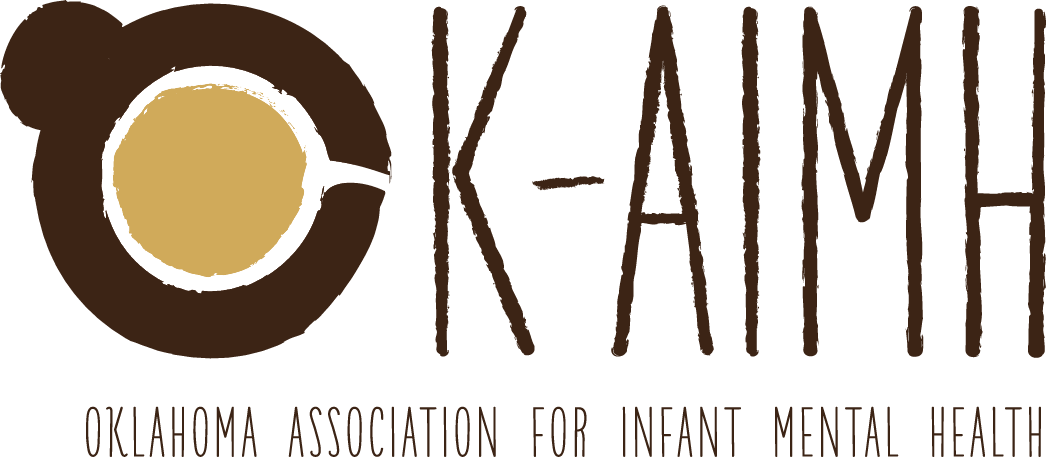Click here to download the document Recommended and Suggested ResourcesIn Preparation for the OK-AIMH Endorsement Exam, Levels III & IV.
Now available: References by Category
Now available: References by Category
Part One
( 60 Multiple Choice Questions – 90 mins)
( 60 Multiple Choice Questions – 90 mins)
Same for all Level III, Level IV-Clincial, Level IV-Policy, and Level IV-Research Faculty candidates
Your study of the following topics, learned in a university program, through intensive infant mental health in-service trainings & workshops, and self-study is the third component.
Your study of the following topics, learned in a university program, through intensive infant mental health in-service trainings & workshops, and self-study is the third component.
Opportunities to reflect on what is learned with colleagues and senior clinicians helps to better ensure integration of theory into practice.
- Pregnancy, childbirth, and the newborn period.
- Attachment theory and early relationship development.
- Caregiving practices and caregiving behaviors.
- Family, parenting and child care issues.
- Infant and toddler development in all domains: social, emotional, cognitive, language, and physical.
- Temperament and individual differences in infancy and early childhood.
- Indicators of risk, identified disturbance or disorder, as well as capacity, in infancy, early childhood, and early parenthood.
- Infant mental health practice.
- Best practice infant mental health assessment, diagnoses, and treatment approaches.
- Cultural competence.
- Familiarity with standardized screening & assessment tools
- Familiarity with service delivery systems that cater to infants, toddlers, and their families
- Reflective supervisory practice (Level IV – Clinical)
Infant Mental Health Specialist (Level III)
Part Two – Response to two of three Clinical Vignettes– 90 minutes
Your work experiences with infants and toddlers and families, where you are working from a relationship-based perspective practicing infant mental health, are crucial.
Your experience of reflective supervision, individual or group, is also important.
Part Two – Response to two of three Clinical Vignettes– 90 minutes
Your work experiences with infants and toddlers and families, where you are working from a relationship-based perspective practicing infant mental health, are crucial.
Your experience of reflective supervision, individual or group, is also important.
Infant Mental Health Mentor – Clinical (Level IV)
Part Two – Response to two of three Clinical Vignette/Scenarios – 90 minutes
One clinical vignette/Scenario is a supervisory vignette/scenario and must be answered from the perspective of the supervisor.
One of two clinical vignettes/scenarios must be answered from the perspective of the infant mental health specialist/practitioner.
--Your work experiences with infants and toddlers and families, where you are working from a relationship-based perspective practicing infant mental health, are crucial.
--Your experience of reflective supervision, individual or group is also important.
--Your experience as a supervisor/consultant who has provided or is providing reflective supervision to practitioners working with infants, toddlers, young children and parents/caregivers is a third important guide.
Part Two – Response to two of three Clinical Vignette/Scenarios – 90 minutes
One clinical vignette/Scenario is a supervisory vignette/scenario and must be answered from the perspective of the supervisor.
One of two clinical vignettes/scenarios must be answered from the perspective of the infant mental health specialist/practitioner.
--Your work experiences with infants and toddlers and families, where you are working from a relationship-based perspective practicing infant mental health, are crucial.
--Your experience of reflective supervision, individual or group is also important.
--Your experience as a supervisor/consultant who has provided or is providing reflective supervision to practitioners working with infants, toddlers, young children and parents/caregivers is a third important guide.
Infant Mental Health Mentor – Policy (Level IV)
Part Two: Policy Response to a Qualitative Question
You will rely on your extensive leadership experience with the infant-family field ensuring the promotion and practice of infant mental health. In particular, you are encouraged to consider:
--Funding
--Systems development
--All that is required to promote change across systems
Part Two: Policy Response to a Qualitative Question
You will rely on your extensive leadership experience with the infant-family field ensuring the promotion and practice of infant mental health. In particular, you are encouraged to consider:
--Funding
--Systems development
--All that is required to promote change across systems
Infant Mental Health Mentor – Research/Faculty (Level IV)
Part Two: Research Response to a Qualitative Question
You will rely on your extensive research and teaching experience in the infant-family field related to the study of pregnancy, infancy, early childhood and early parenthood; attachment security and relationship needs; risk and resiliency in the early years; caregiving practices; early assessment and intervention strategies, and the mental health needs of infants and toddlers, to name a few.
Part Two: Research Response to a Qualitative Question
You will rely on your extensive research and teaching experience in the infant-family field related to the study of pregnancy, infancy, early childhood and early parenthood; attachment security and relationship needs; risk and resiliency in the early years; caregiving practices; early assessment and intervention strategies, and the mental health needs of infants and toddlers, to name a few.
